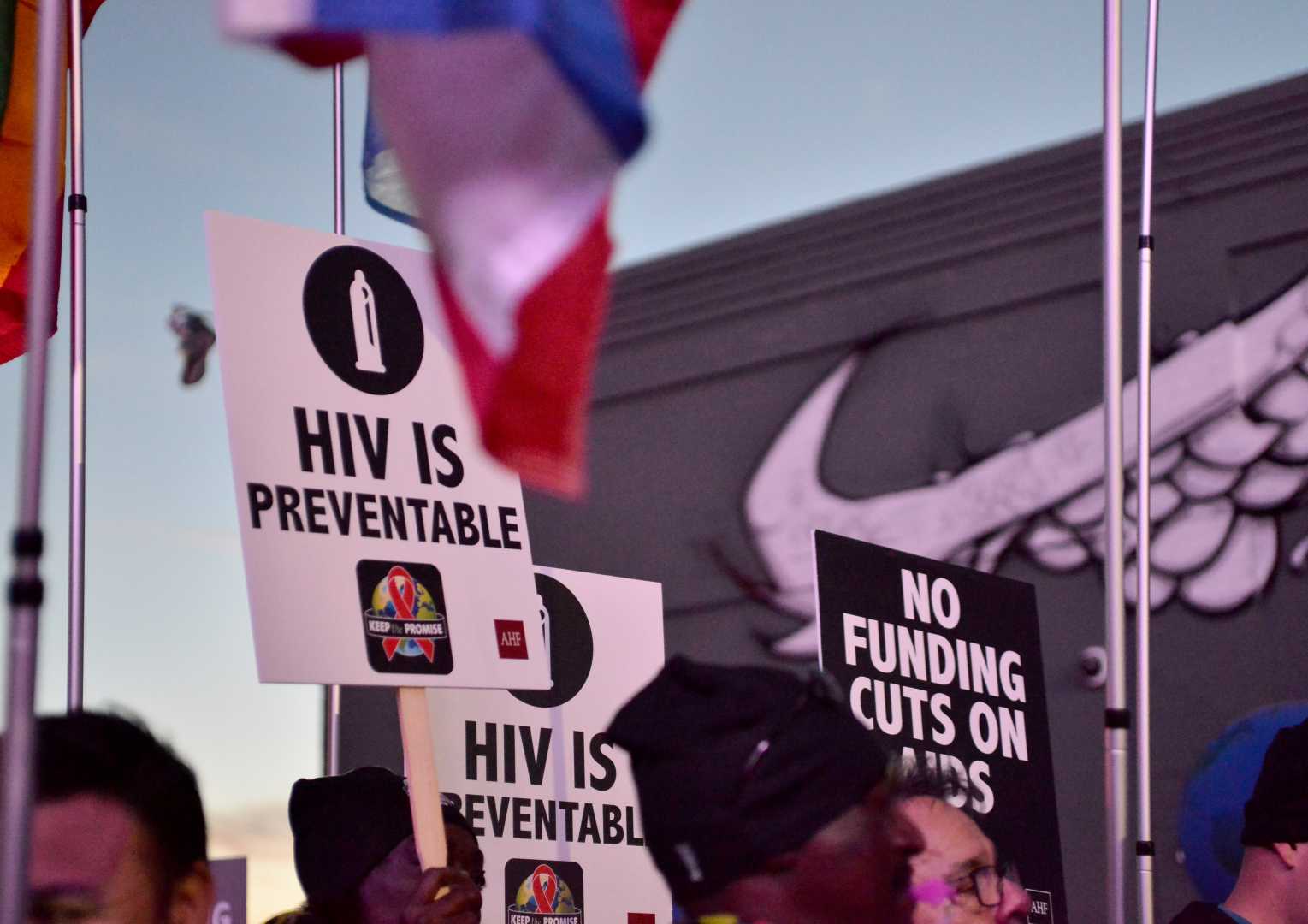Health
145 NIH Grants Terminated, Harming HIV Research Progress

WASHINGTON, D.C. — The termination of over 145 grants by the National Institutes of Health (NIH) has jeopardized crucial HIV research efforts in the United States, according to scientists. These grants, which totaled nearly $450 million, were intended for studies that aimed to prevent new infections and improve access to care.
Over the past month, many researchers received notices about canceled funding, with some informed as recently as last Thursday. The NIH, a branch of the Department of Health and Human Services, represents the largest source of medical research funding globally, leaving numerous scientists scrambling to adapt to these cuts.
"The loss of this research could very well result in a resurgence of HIV that becomes more generalized in this country," said Julia Marcus, a professor at Harvard Medical School, whose recent grants were among those terminated. "These drastic cuts are rapidly destroying the infrastructure of scientific research in this country, and we are going to lose a generation of scientists."
In 2012, the Food and Drug Administration (FDA) approved pre-exposure prophylaxis (PrEP), an antiviral drug that significantly reduces the risk of acquiring HIV. Despite its success, roughly 30,000 new infections still occur annually in the U.S. Cultural and economic inequities hinder access to such life-saving medications, particularly among at-risk populations.
Many canceled studies had focused on enhancing the availability of PrEP in communities disproportionately affected by HIV, including Black men and transgender women. Marcus’s research, for example, aimed to explore whether over-the-counter availability of PrEP could boost its usage in vulnerable demographics.
"The research has to focus on the populations that are most affected in order to have an impact and be relevant," Marcus added.
One termination letter, reviewed by The Guardian, referenced the rationale behind defunding research that emphasizes diversity, equity, and inclusion (DEI), arguing that such studies could lead to discrimination. The NIH, when contacted for clarification regarding these decisions, stated it was "taking action to terminate research funding that is not aligned with NIH and HHS priorities."
Researchers expressed disbelief at the depth of these funding cuts, especially given recent governmental commitments to eradicate the HIV epidemic within a decade. In 2019, then-President Donald Trump pledged to eliminate the disease by making PrEP accessible to low-income individuals.
"Scientific breakthroughs have brought a once-distant dream within reach," Trump said during his State of the Union address. "Together, we will defeat AIDS in America."
Amy Nunn, a professor at Brown University, focused her grant proposals on addressing geographic disparities in PrEP use among African American men in Mississippi. She noted that the federal administration’s current actions contradict its previous commitments to tackle the HIV epidemic.
"Now they’re undercutting their own successes. It’s so strange," Nunn stated.
While several of the terminated projects had been underway for years, the cancellations do not necessarily yield savings for the administration, particularly for those projects nearing completion.
Nathaniel Albright, a PhD candidate at Ohio State University, had his NIH grant discontinued despite having completed his research. Although he is set to defend his dissertation, he expressed concern about the implications of these funding cuts on the future of research and academia.
"It’s created an environment in academia where my research trajectory is now considered high risk to institutions," Albright said. "I’m currently struggling to find postdoctoral positions at universities."
Pamina Gorbach, an epidemiologist at UCLA who has studied the needs of hundreds of men living with HIV for a decade, shared her devastation over the loss of her NIH grant, which she hoped would improve treatment options through local clinics.
"If you’re living with HIV and you’re not on meds, you know what happens? You get sick and you die," Gorbach remarked.
Clinic staff in Los Angeles are expected to face layoffs due to these funding disruptions, further exacerbating concerns regarding patient care and the loss of progress toward combating the epidemic.
"This is erasing an entire population of people who have been impacted by an infectious disease," said Erin Kahle, director of the Center for Sexuality and Health Disparities at the University of Michigan, whose own NIH grant was cut. "This is setting us back decades."
Additionally, over 1,900 members of the National Academies of Sciences, Engineering, and Medicine recently signed an open letter warning of the "real danger" posed by the Trump administration’s ongoing attacks on scientific research and funding.
The letter emphasizes that the cuts are forcing institutions to halt essential research, dismiss faculty, and restrict opportunities for the next generation of scientists, undermining the mission of unbiased scientific inquiry.
As fears of further cuts loom large, Dr. Robert Steinbrook, director of health research at Public Citizen, lamented the chaos facing the nation’s scientific community.
"The nation’s scientific enterprise is being annihilated, and the silence of too many of our scientific leaders is only making the ongoing catastrophe worse," Steinbrook said.












